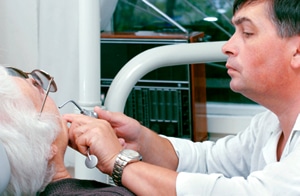Reasons Teeth Shift During Sleep

People tend to assume that once their baby teeth are gone and the adult teeth are all in that there will be no further changes in their smiles. That is not really the case. Your teeth can shift over time, especially while you sleep. Your teeth move around slightly at night. Sometimes it is due to the muscles of your jaw and mouth simply relaxing, and other times it can be due to the pressure of teeth trying to come in, like your wisdom teeth. Yet other times it can be due to how you sleep. Here are a couple of the reasons why.
Teeth Grinding
One of the most common reasons why teeth shift during sleep is because of a condition known as bruxism. It is more commonly called teeth grinding. Grinding your teeth at night is a fairly common problem, but most people do not know that they do it. If someone is a teeth grinder, over time it could cause a shift in their teeth.
Sleep Position
The way that you sleep could also cause your teeth to shift over time. If you tend to always sleep on the same side, it could make a difference. Try to not bury your head partially in your pillow when you are falling asleep. Instead, have your head turned enough so that your jaw is not resting against the pillow.
Poor Dental Habits
If you do not brush your teeth each night before you go to bed, you are risking more than just cavities. You could end up with gum disease, and weaker gums can cause a shift in your teeth.
Age and Genetics
While age and genetics are not factors only at night, they both can play a part in the shifting of teeth. A small change can be expected, but if your teeth have shifted enough that it is bothersome, you should come in for an exam.
If you have noticed that your teeth have shifted, the best thing that you can do is to come in for an appointment. We would like to find the cause of the shift, and also make sure that you will not have problems because of it.
